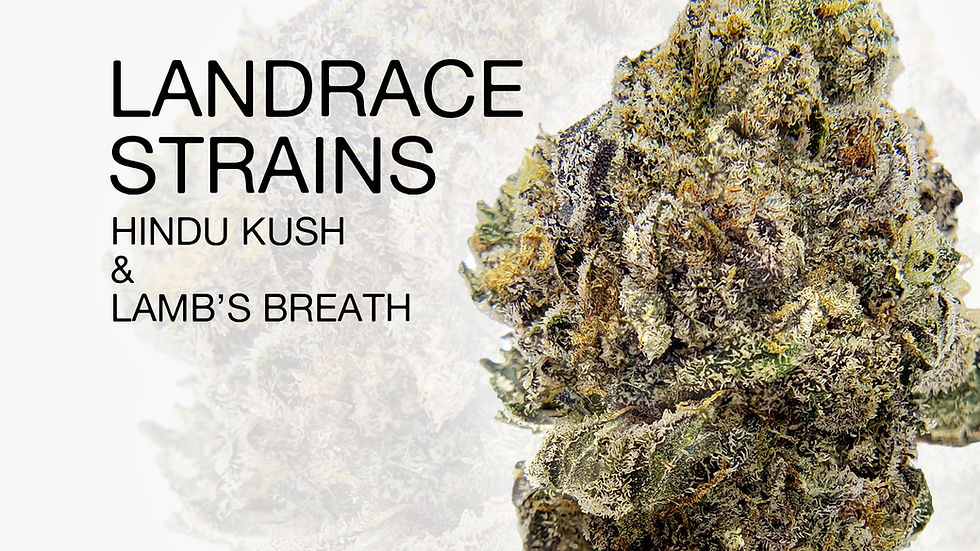How to Avoid Getting a THC DUI Under the New Smart and Safe Arizona Act
- Cannabis Cactus

- Jan 31, 2021
- 4 min read
This is an update to the three-part series that I did last year that discussed how to avoid getting arrested on a marijuana DUI charge. Everything has changed, however, under the new SSAA adult use law.
To recap, under AMMA, a patient is given an opportunity to prove to a jury that they were not impaired by the specific active THC/metabolite nanogram level found in their blood. In effect, they had to prove that they were not guilty of being impaired. Hardly American. What’s worse is that non-patients were denied any opportunity to prove that they were not impaired by their THC level. In other words, non-patients were automatically guilty if the state merely proved that they had any level of active THC/metabolites in their blood. Under SSAA, everything has changed. Specifically, SSAA states as follows:
Notwithstanding any other law, a person with metabolites or components of marijuana in the person’s body is guilty of violating [the metabolite DUI statue] only if the person is also impaired to the slightest degree.
As you can see, the new law states that a driver cannot be found guilty unless the prosecution proves to a jury beyond a reasonable doubt that the driver was, in fact, impaired. So, the State now carries the burden of proving impairment, regardless of the driver’s THC level. This is, of course, a game changer. It will now be much more difficult for prosecutors to prove THC DUI going forward under SSAA.
The caveat to this new law is a section in SSAA that allows the legislature to impose a per se THC level, but only if the National Traffic Safety Administration (NHTSA) recommends that one be adopted. NHTSA, however, has consistently found that there cannot be a specific nanogram level that indicates impairment, because with THC, tolerance levels vary greatly. Basically, an experienced cannabis consumer can operate a vehicle safely with high THC levels, whereas a novice may be impaired by relatively low levels. It is unlikely, therefore, that NHTSA will recommend a specific THC per se level in the future. This has not stopped the Arizona Legislature from already trying, however.
Recently, on January 13, HB 2084 was introduced to the House of Representatives. The bill, among other things, would enact a statute that creates a presumption of impairment if the driver tested for 2 nanograms of THC or more. This is an incredibly low level. Virtually all regular consumers have more than 2 ng of THC in their blood at any given time. If passed, such a statute would arguably violate the Arizona Voter Protection Act which prohibits the legislature from modifying a ballot initiative unless the measure “furthers the purpose” of the initiative it modifies. As you might have noticed, however, HB 2084 would not impose a per se level, but only create a presumption of impairment at 2 nanograms. This means that the burden of proof would shift to the driver, much like the previous standard that applied under AMMA. What’s worse, however, is that the driver would have to overcome a legal presumption of impairment. There is no such presumption under AMMA. In sum, if passed, 2084 would still be better than the previous standard for non-patients, but a little worse than the patient standard under AMMA.
In the opinion of the author, even though 2084 only sets up a presumption, and not a per se cut off, it still violates the Voter Protection Act because it modifies SSAA in a way that does not further its purpose. If passed, however, it is impossible to say what the courts would do with it. They might let it slide. I encourage all readers, therefore, to write to your representatives in the AZ legislature to urge them not to pass HB 2084. Now is the time to make your opinion known before this goes to a vote. If it does, the governor would likely sign it and our battle would then be in the courts. Likely, it will take 2 – 3 years to get an appellate decision, and many Arizona cannabis consumers would be subject to serious DUI penalties in the meantime. These would include, among other things, a day in jail, stiff fines, license suspension, and drug treatment.
In conclusion, I have good news and bad news. The good news is that SSAA has dramatically improved the DUI situation for cannabis consumers. The bad news is that legislators are already trying to tamper with the new law. This should come as no surprise, of course, given our government’s history. Times have changed, on the other hand, and there is a good chance that, with your voice, HB 2084 will not pass in the first place. If it does, you can bet that I will be very anxious to fight it in the courts.

Tom Dean has been a criminal defense lawyer since 1993 and has been winning marijuana cases in Arizona for over 20 years. Tom has represented persons charged with every kind of marijuana offense, including cultivation, transportation, sales, extraction, DUI, and simple possession. For more information about Tom Dean, visit his website.






Comments